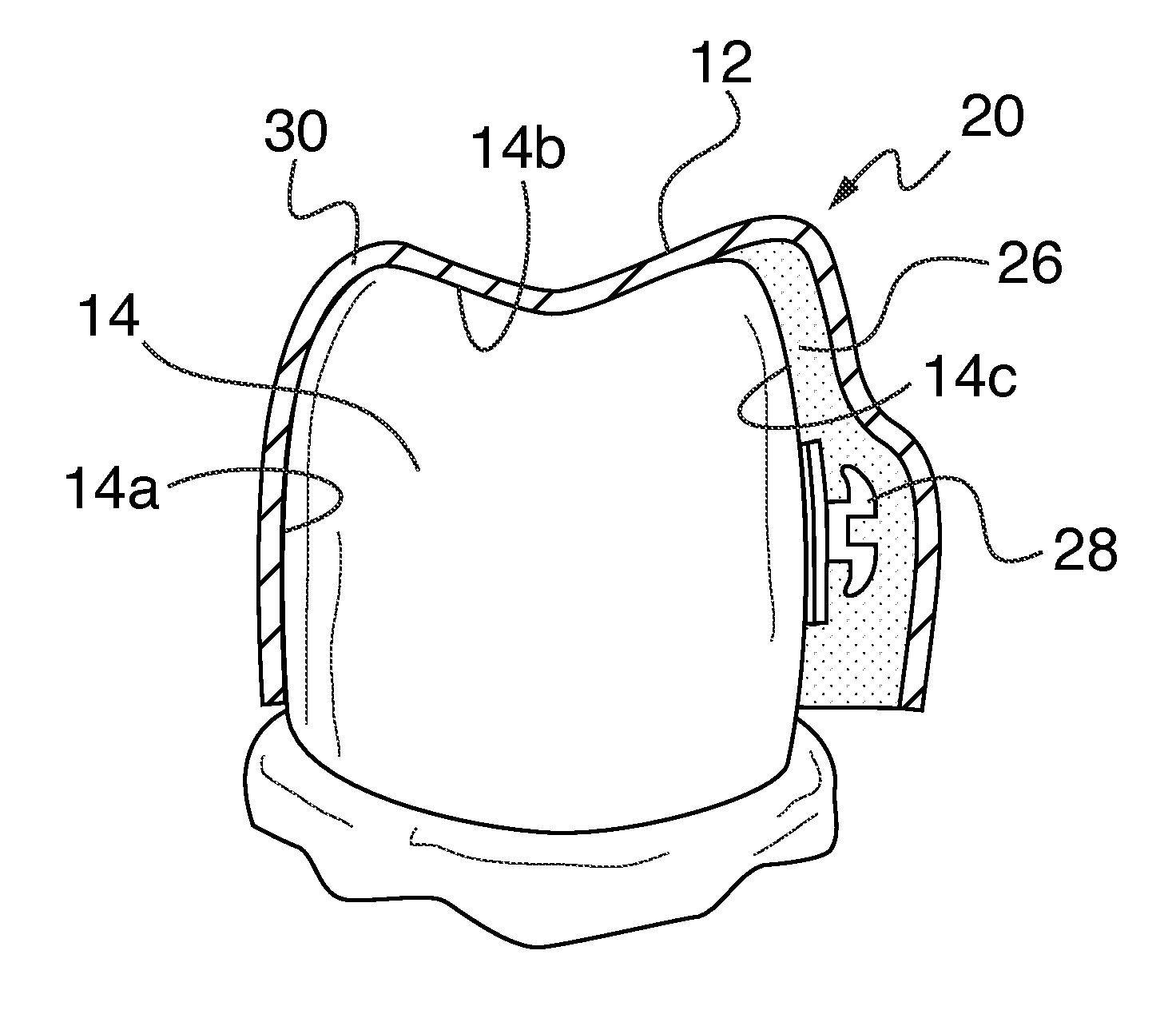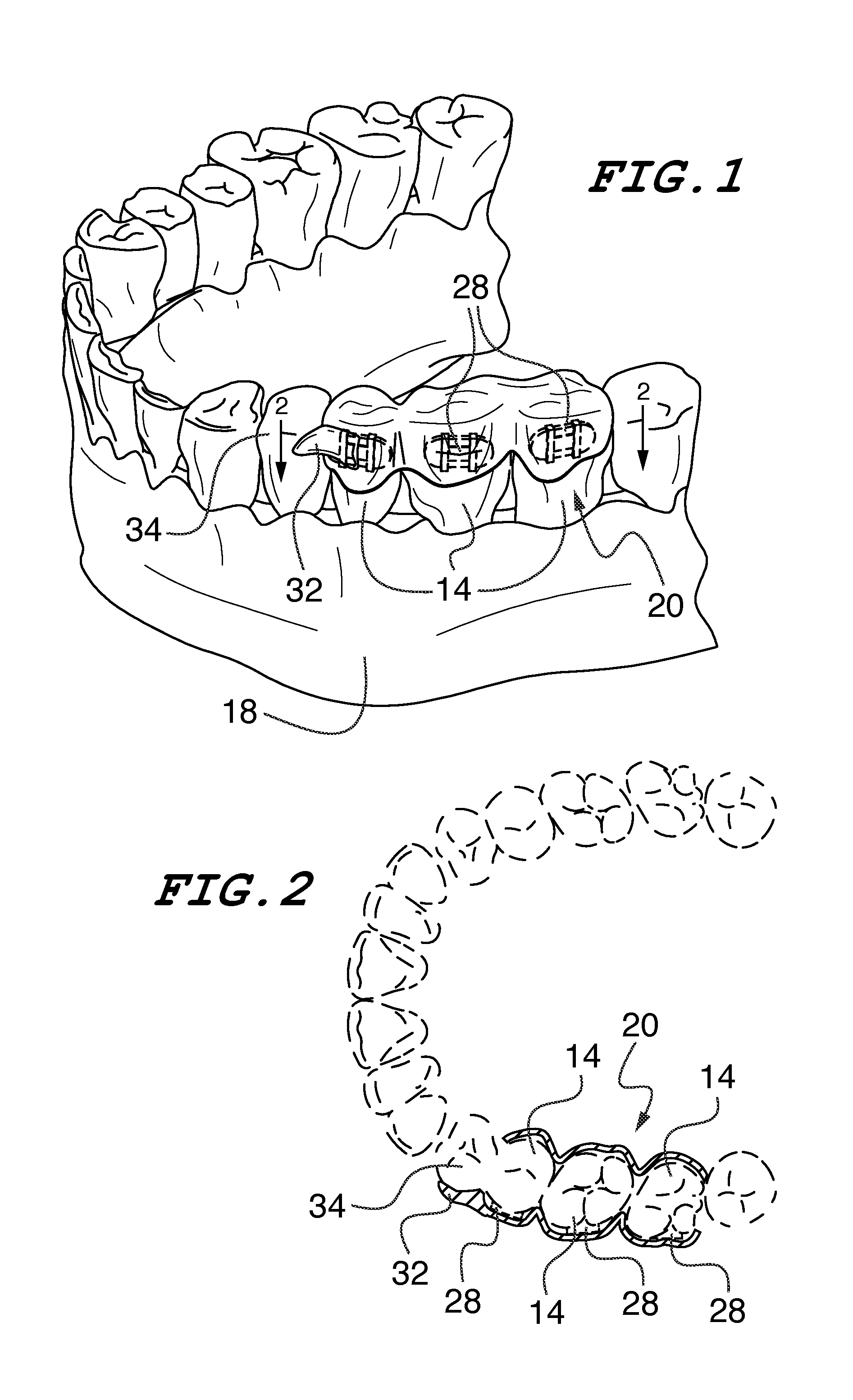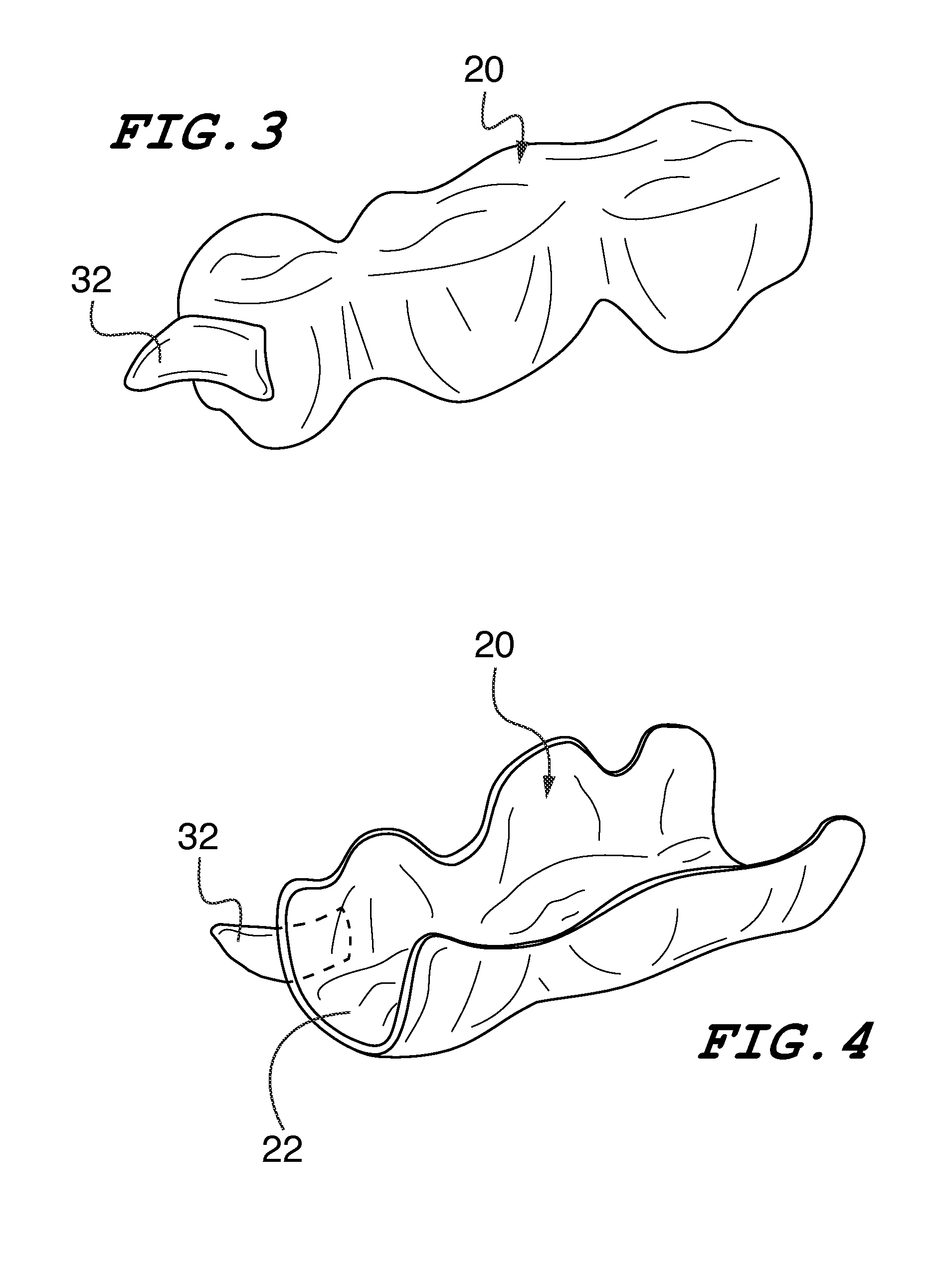Orthodontic indirect bonding tray including stabilization features
a technology of stabilization feature and orthodontic appliances, which is applied in the field of indirect bonding tray including stabilization feature, can solve the problems of appliance unintentionally dislodging from its intended location, difficulty in accessing the surface of malposed teeth, and difficulty in seeing the precise position of the bracket relative to the tooth surfa
- Summary
- Abstract
- Description
- Claims
- Application Information
AI Technical Summary
Benefits of technology
Problems solved by technology
Method used
Image
Examples
Embodiment Construction
[0022]Referring now in greater detail to the drawings in which like numerals represent like components throughout the several views, there is shown in FIGS. 1-5 an embodiment of the orthodontic indirect bonding tray including stabilization features of the present invention which is broadly designated by the numeral 20. As best shown in FIGS. 1 and 2, the bonding tray 20 is shown positioned over several teeth 14 of the upper jaw 18, or maxilla, of an orthodontic patient, the teeth 14 requiring corrective orthodontic alignment. FIG. 1 illustrates the upper dental arch rotated one-hundred eighty degrees to illustrate the occlusal surfaces of the teeth located therein. Although the figures illustrate the indirect bonding tray of the present invention positioned over teeth of the upper jaw, it should be understood that it is within the scope of the present invention that the bonding tray 20 could be positioned over teeth of the lower jaw.
[0023]The tray 20 includes a channel 22 (FIG. 4) c...
PUM
 Login to View More
Login to View More Abstract
Description
Claims
Application Information
 Login to View More
Login to View More - R&D
- Intellectual Property
- Life Sciences
- Materials
- Tech Scout
- Unparalleled Data Quality
- Higher Quality Content
- 60% Fewer Hallucinations
Browse by: Latest US Patents, China's latest patents, Technical Efficacy Thesaurus, Application Domain, Technology Topic, Popular Technical Reports.
© 2025 PatSnap. All rights reserved.Legal|Privacy policy|Modern Slavery Act Transparency Statement|Sitemap|About US| Contact US: help@patsnap.com



